
Tangier Region: The Gateway to Africa
Nestled at the crossroads of Europe and Africa, the Tangier Region in Morocco is a mesmerizing blend of history, culture, and natural beauty. This coastal region has long been a melting pot of civilizations, offering an eclectic mix of architectural styles, culinary delights, and vibrant marketplaces. From the bustling medina of Tangier city to the serene beaches of Asilah, the region caters to a diverse array of interests. Wander through the narrow streets lined with white-washed buildings, discover hidden cafes and artisan shops, or relax by the azure waters of the Mediterranean Sea. Not far from the city, the Caves of Hercules offer a fascinating glimpse into local folklore and breathtaking views of the Atlantic Ocean. The region is also home to the scenic Rif Mountains, perfect for hiking and exploring traditional Berber villages. Whether you are a history buff, a nature enthusiast, or simply looking to unwind, the Tangier Region promises an unforgettable experience.
Local tips in Tangier Region
- Visit the medina early in the morning to avoid crowds and enjoy a more peaceful experience.
- Try the local cuisine, especially seafood dishes, which are a specialty in this coastal region.
- Wear comfortable walking shoes as the streets can be steep and uneven.
- Hire a local guide to explore the Caves of Hercules for a richer understanding of its history and legends.
- Bring a light jacket even in summer, as coastal breezes can make evenings cooler.
Tangier Region: The Gateway to Africa
Nestled at the crossroads of Europe and Africa, the Tangier Region in Morocco is a mesmerizing blend of history, culture, and natural beauty. This coastal region has long been a melting pot of civilizations, offering an eclectic mix of architectural styles, culinary delights, and vibrant marketplaces. From the bustling medina of Tangier city to the serene beaches of Asilah, the region caters to a diverse array of interests. Wander through the narrow streets lined with white-washed buildings, discover hidden cafes and artisan shops, or relax by the azure waters of the Mediterranean Sea. Not far from the city, the Caves of Hercules offer a fascinating glimpse into local folklore and breathtaking views of the Atlantic Ocean. The region is also home to the scenic Rif Mountains, perfect for hiking and exploring traditional Berber villages. Whether you are a history buff, a nature enthusiast, or simply looking to unwind, the Tangier Region promises an unforgettable experience.
When is the best time to go to Tangier Region?
Iconic landmarks you can’t miss
Hercules Caves
Explore the enchanting Hercules Caves in Tangier, where myth meets breathtaking natural beauty, and history unfolds in every rock formation.
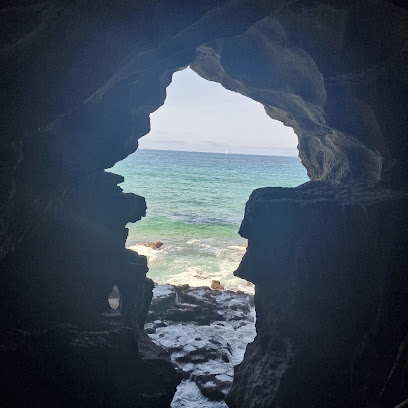
Grand Socco
Discover the vibrant culture and rich history of Tangier at Grand Socco, a must-visit landmark and bustling tourist attraction.
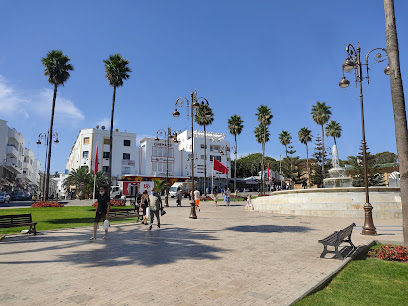
Rmilat Park
Explore the serene beauty of Rmilat Park in Tangier, a perfect blend of nature, relaxation, and breathtaking Mediterranean views.
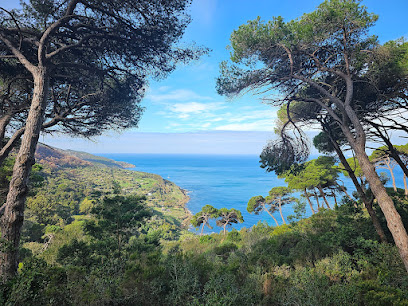
Tanja Marina Bay
Experience the stunning beauty and vibrant culture of Tanja Marina Bay, the premier marina destination in Tangier, Morocco.
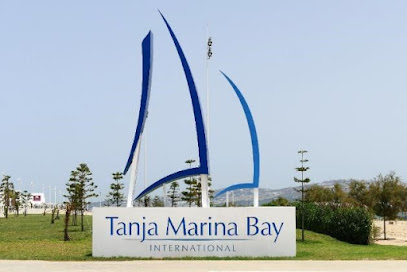
Cap Spartel
Experience the breathtaking views at Cap Spartel, where the Atlantic meets the Mediterranean, rich in history and natural beauty.
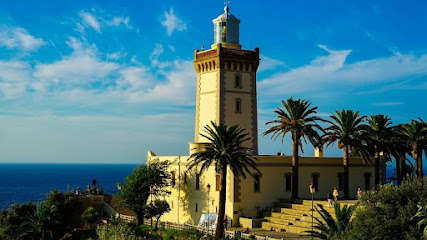
Villa Harris Park
Discover the serene charm of Villa Harris Park, a lush retreat in Tangier perfect for families, nature lovers, and cultural enthusiasts.
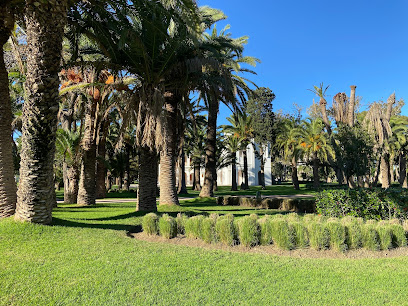
Mosque Mohammed V
Discover the architectural beauty and serene ambiance of Mosque Mohammed V in Tangier, a must-visit cultural gem in Morocco.
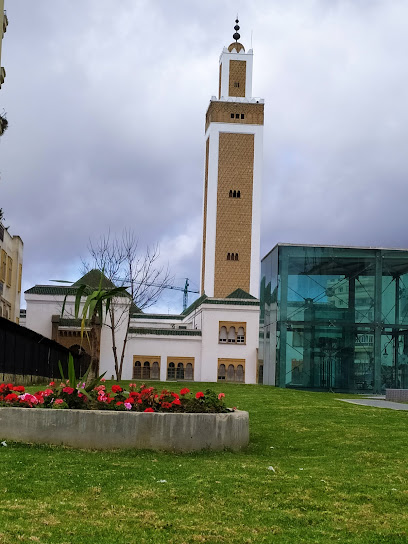
Bab Al Bahr
Explore Bab Al Bahr, Tangier's iconic gateway that beautifully blends rich history with vibrant local culture, offering stunning views and unique experiences.
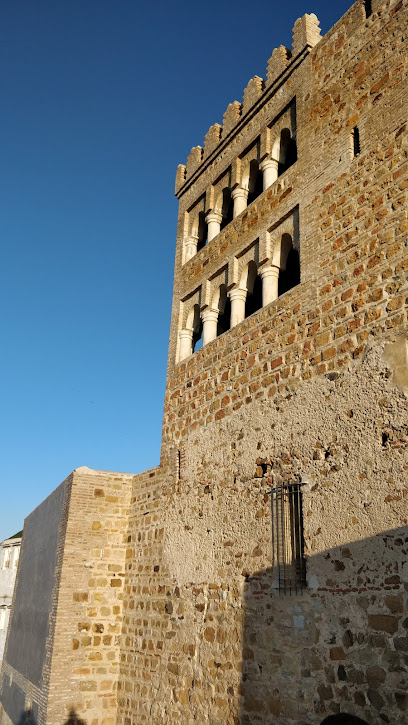
Kasbah Museum
Explore the vibrant history and culture of Morocco at Tangier's Kasbah Museum, a stunning blend of art, architecture, and heritage.
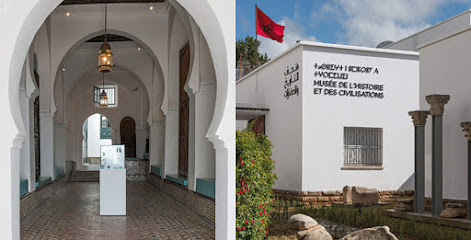
Plaza de Toros
Discover the captivating Plaza de Toros in Tangier, a historical landmark that reflects the city's rich cultural legacy and stunning architectural beauty.
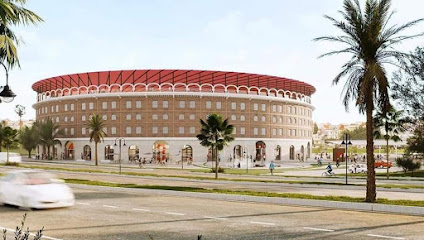
Tangier American Legation Museum
Explore the Tangier American Legation Museum, a historical gem revealing the rich tapestry of US-Moroccan relations through art, artifacts, and architecture.
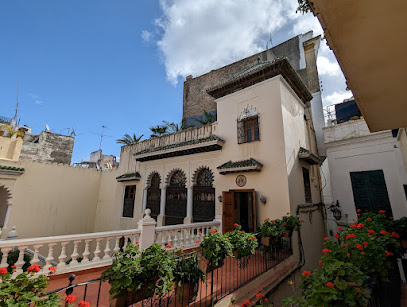
Lighthouse Cap Malabata
Experience the stunning views and rich maritime history at Cap Malabata Lighthouse, a must-see attraction in Tangier, Morocco.
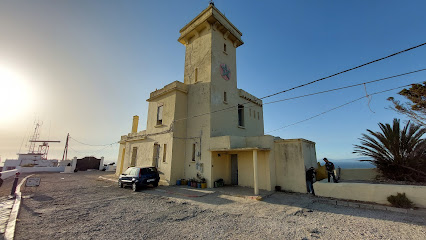
Tombeaux Phéniciens
Explore the ancient Phoenician Tombs of Tangier, a captivating glimpse into history with stunning views and serene surroundings.
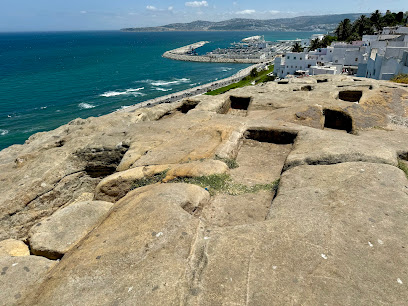
Tangier Grande Mosque
Discover the Grande Mosque of Tangier, a stunning landmark that showcases Morocco's rich Islamic heritage and architectural beauty.
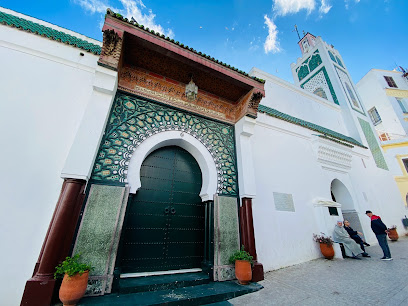
Bab Kasbah
Discover the rich history and stunning architecture of Bab Kasbah, a must-visit landmark in Tangier, Morocco.
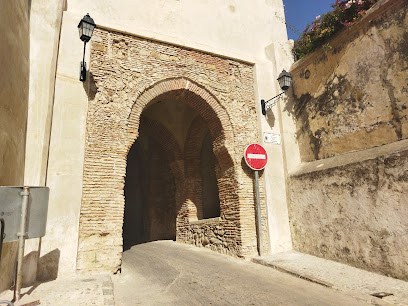
Unmissable attractions to see
Hercules Caves
Explore the Hercules Caves, a breathtaking natural wonder near Tangier, Morocco, where myth meets magnificent coastal views and rich history.
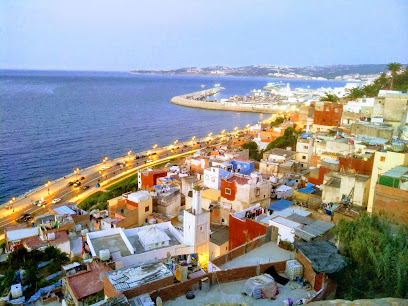
Grand Socco
Discover the vibrant essence of Tangier at Grand Socco, where history meets modern charm in the heart of the city.
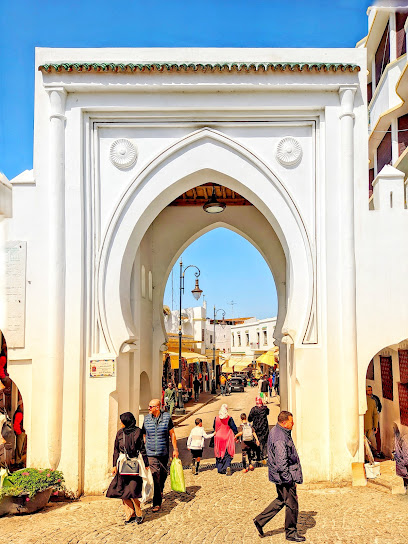
Cap Spartel
Explore Cap Spartel, where the Atlantic meets the Mediterranean in a stunning blend of nature, history, and culinary delights.
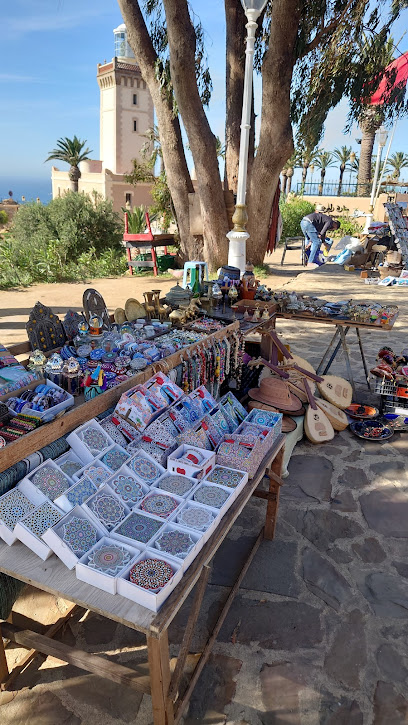
Plaza de Toros
Experience the rich history and architectural beauty of Plaza de Toros, a cultural gem in Tangier that showcases Morocco's vibrant traditions.
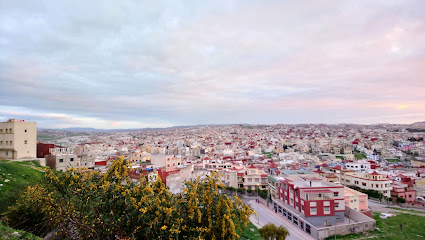
Tangier American Legation Museum
Discover the Tangier American Legation Museum: a unique blend of history and culture showcasing Moroccan-American ties.
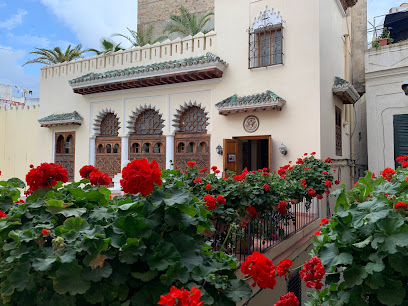
Rmilat Park
Discover the serene beauty of Rmilat Park in Tangier, where lush landscapes meet breathtaking ocean views for a perfect getaway.
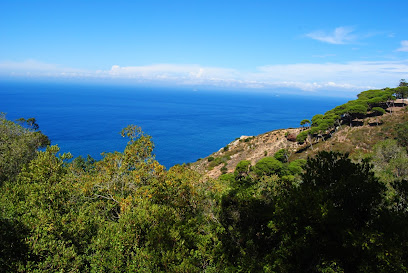
Lighthouse Cap Malabata
Discover the stunning Lighthouse Cap Malabata in Tangier, a must-visit attraction offering breathtaking views and rich maritime history.
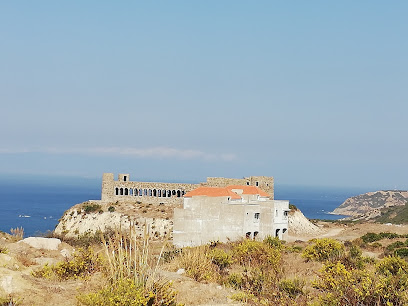
Tangier Grande Mosque
Experience the tranquility and beauty of the Grande Mosque of Tangier, a remarkable piece of Morocco's rich cultural and architectural heritage.
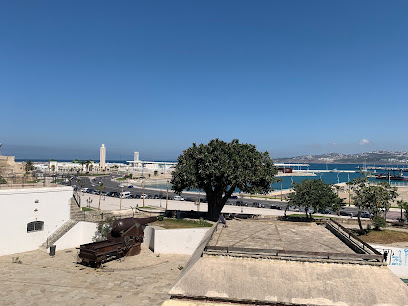
Tomb of Ibn Batutta
Explore the Tomb of Ibn Batutta in Tangier, a serene site honoring the legendary Moroccan explorer amidst a backdrop of rich cultural heritage.
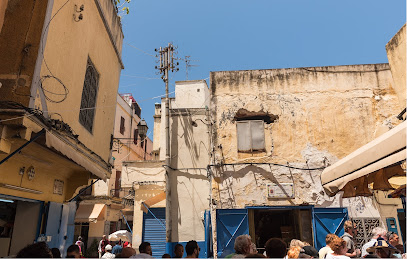
Muraille de Tanger
Discover the historic charm and breathtaking views at Muraille de Tanger, a must-visit tourist attraction in Tangier, Morocco.
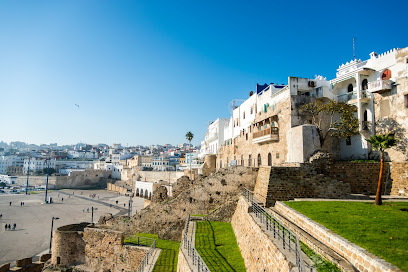
Terrasse des Dromadaires
Experience the breathtaking views and vibrant culture at Terrasse des Dromadaires in Tangier – a must-visit tourist attraction for an unforgettable adventure.
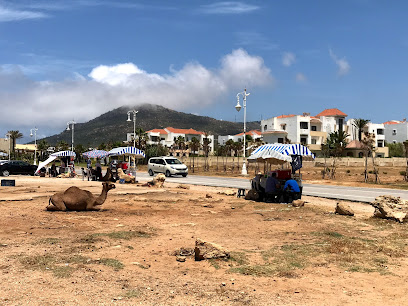
Art Street in Tanger
Explore Art Street in Tanger, where vibrant murals and local galleries showcase the rich cultural heritage and artistic spirit of Morocco.
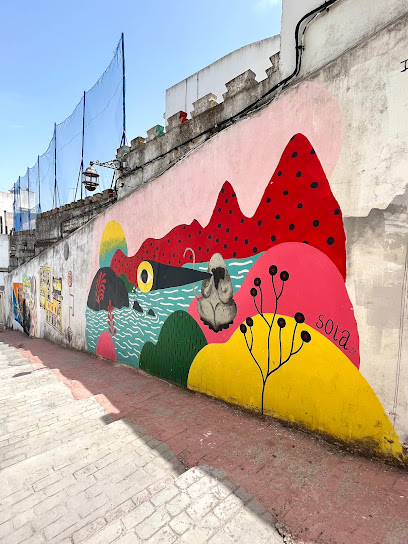
غابة اورغازين
Discover the serene beauty of غابة اورغازين, a lush forest in Morocco, perfect for nature lovers and adventure seekers seeking tranquility.

اشروظة بني سعيد
Discover the rich history and stunning landscapes at Ashrouza Ben Said, a captivating tourist attraction in Amaghousse, Morocco.

Essential places to dine
Woods Café-Restaurant
Experience exquisite flavors at Woods Café-Restaurant in Tangier - where local charm meets culinary delight.
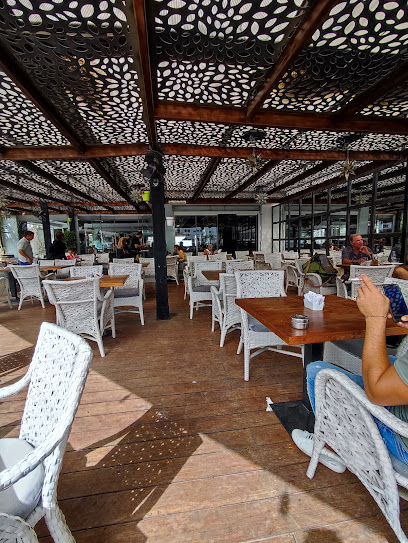
Kebdani Restaurant
Discover authentic Moroccan cuisine at Kebdani Restaurant in Tangier's Ancien Medina - where every meal is a celebration of flavor.
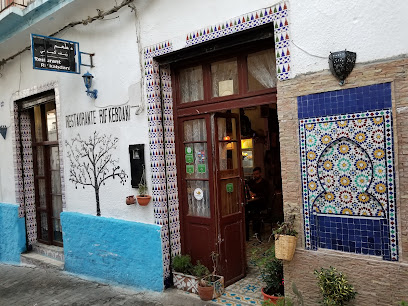
Restaurant Al Maimouni
Experience authentic Moroccan cuisine at Restaurant Al Maimouni in Tangier's vibrant Ancien Medina, where every dish tells a story.
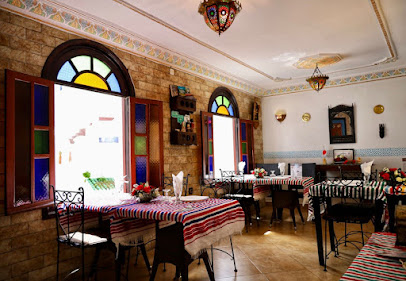
La Table du Marché
Experience the vibrant flavors of Morocco at La Table du Marché in Tangier's beautiful Marina Bay.
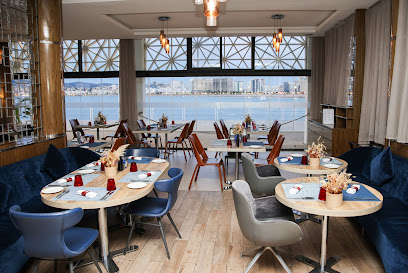
Abou Tayssir
Experience authentic Syrian cuisine at Abou Tayssir in Tangier - where every dish tells a story.
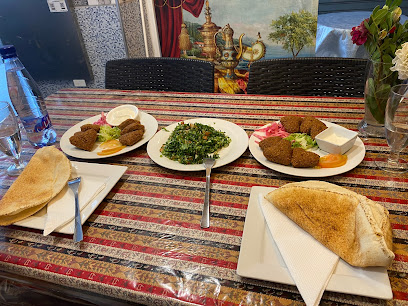
Restaurant Ali Baba
Discover authentic Lebanese flavors at Restaurant Ali Baba in Tangier - a culinary haven for food lovers.
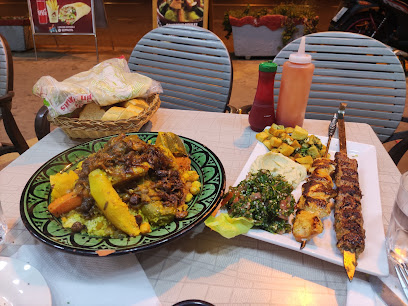
El Morocco Club
Discover El Morocco Club: A unique blend of Moroccan cuisine and live music nestled in Tangier's historic Kasbah.
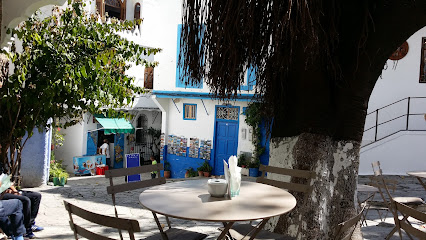
L'Océan
Experience exquisite seafood dining at L'Océan in Tangier – where every meal comes with breathtaking Mediterranean views.
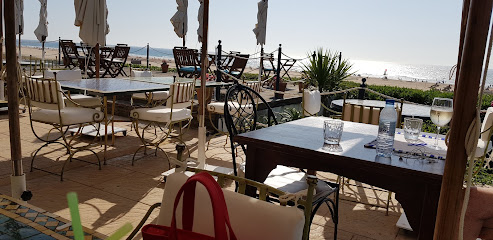
Dar Naji
Experience authentic Moroccan cuisine at Dar Naji in Tangier—where every dish is a celebration of flavor and culture.
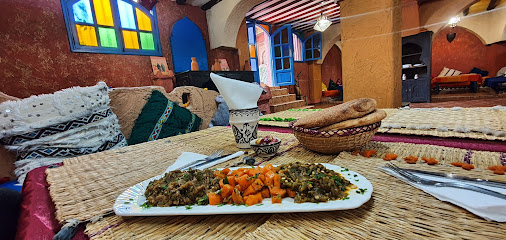
Le Salon Bleu
Discover authentic Moroccan cuisine at Le Salon Bleu in Tangier's enchanting Kasbah district.
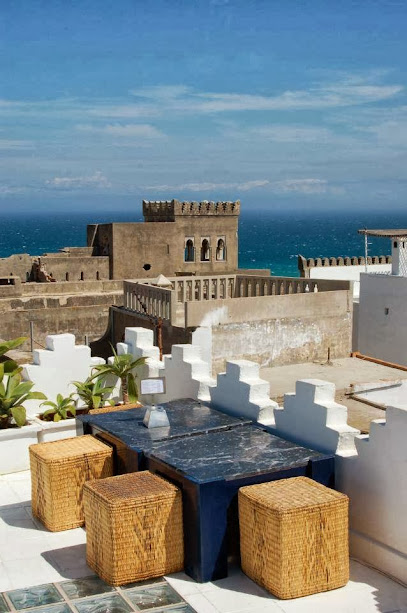
Comedia
Discover the flavors of Morocco at Comedia in Tangier – where culinary tradition meets modern dining.
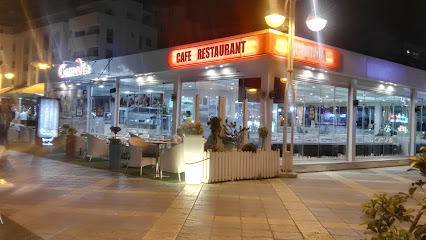
Mesana Restaurant
Discover authentic Basque flavors at Mesana Restaurant in Tangier - a culinary haven for food lovers seeking unforgettable dining experiences.
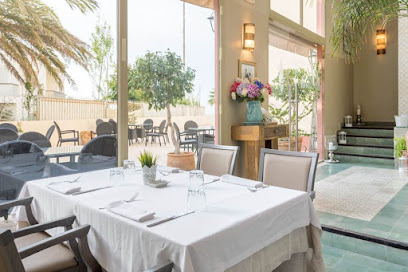
Dar Harruch
Discover the rich flavors of Morocco at Dar Harruch, where traditional cuisine meets a cozy coffee shop ambiance in Tangier's historic medina.
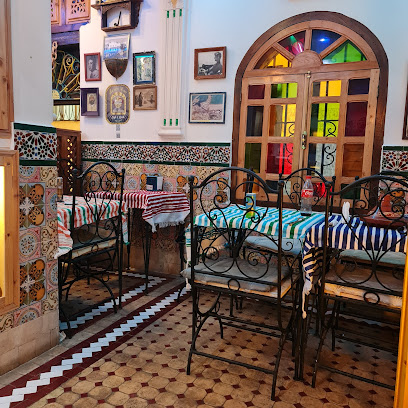
Anna e Paolo
Experience authentic Italian cuisine in Tangier at Anna e Paolo - where every meal feels like a journey to Italy.
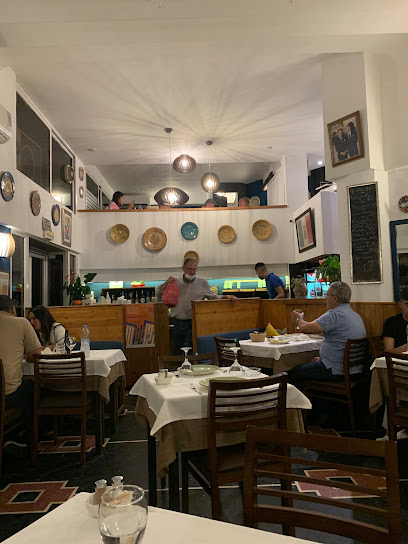
Ô Saveur
Discover the taste of Morocco at Ô Saveur, where tradition meets modern cuisine in Tangier's vibrant dining scene.
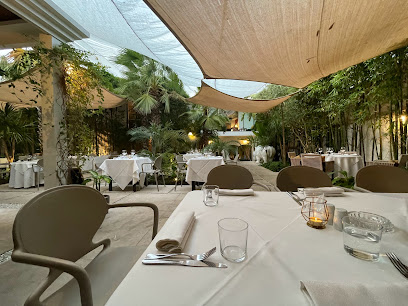
Markets, malls and hidden boutiques
Medina Shop
Discover the essence of Moroccan craftsmanship at Medina Shop in Tangier's historic medina, a must-visit for unique souvenirs and local goods.
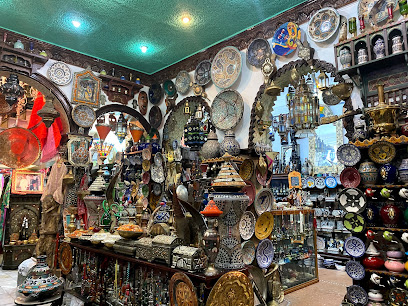
Rebajas Tanger
Explore Rebajas Tanger for unique gifts, custom souvenirs, and handcrafted jewelry that celebrate the vibrant culture of Tangier.
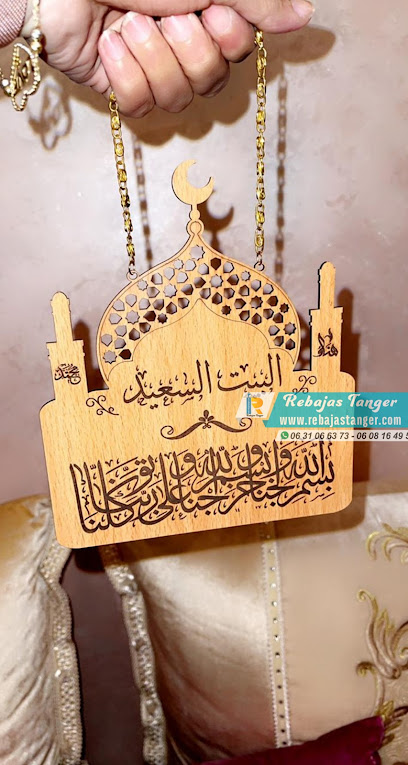
Boutique Majid
Explore the charm of Boutique Majid in Tangier, a hidden gem for antique lovers with a rich collection of cultural treasures and unique vintage finds.
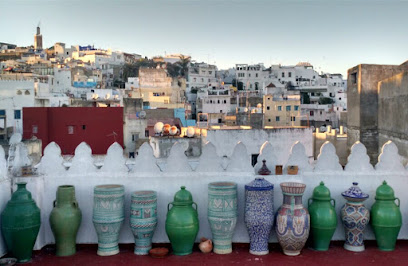
Tanger Shop
Discover the heart of Moroccan fashion at Tanger Shop, where local craftsmanship meets contemporary style in vibrant Tangier.
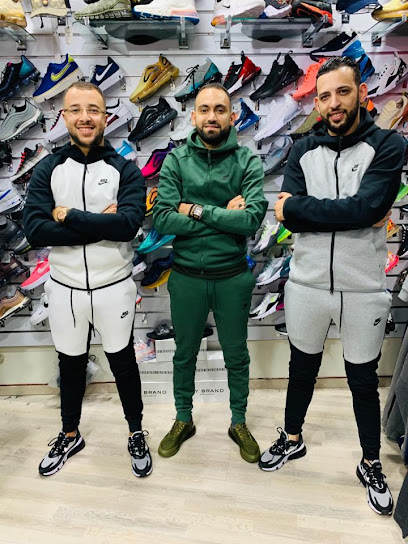
Bazar Mehdi Roussi
Explore the vibrant Bazar Mehdi Roussi in Tangier, where local crafts and musical instruments celebrate Moroccan culture and artistry.
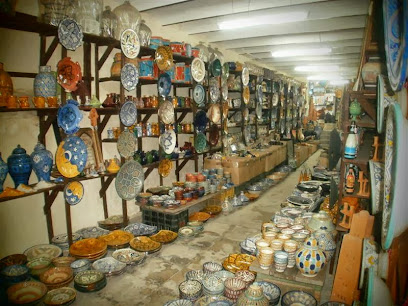
Tangier Crafts Souvenirs
Explore the vibrant world of Moroccan craftsmanship at Tangier Crafts Souvenirs, where every piece tells a story of tradition and artistry.
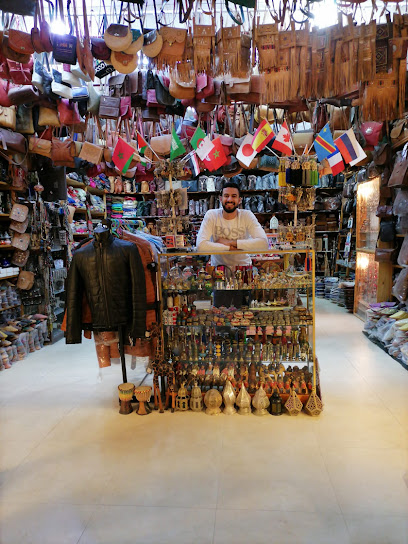
Bazar Tindouf
Explore Bazar Tindouf in Tangier for authentic Moroccan antiques, unique souvenirs, and a taste of local culture.
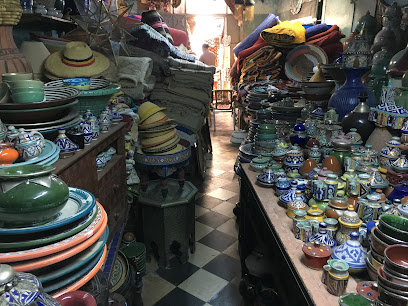
New Tangier
Explore the charm of New Tangier, a vibrant store in Marshan offering unique local crafts and a sense of Moroccan culture.
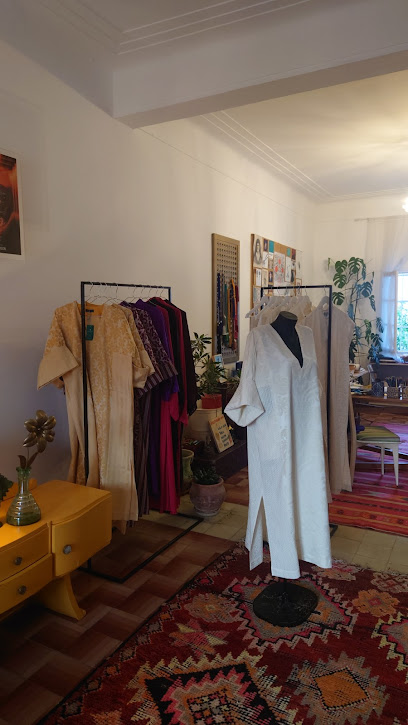
Bazar Tanger
Explore Bazar Tanger: Your gateway to authentic Moroccan crafts and souvenirs in the heart of Tangier's Ancien Medina.
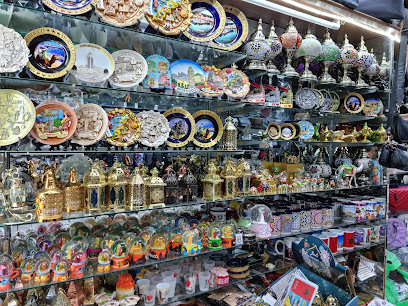
Moroccan Creations by Bazar Bouchta
Explore the vibrant world of Moroccan antiques and crafts at Bazar Bouchta in Tangier's historic Medina, a treasure trove of unique artistry.
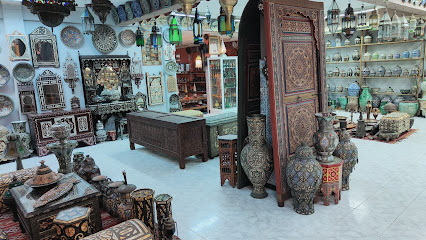
Galerie Tindouf
Explore Galerie Tindouf in Tangier, a captivating antique store showcasing unique artifacts and vintage treasures reflecting Morocco's rich heritage.
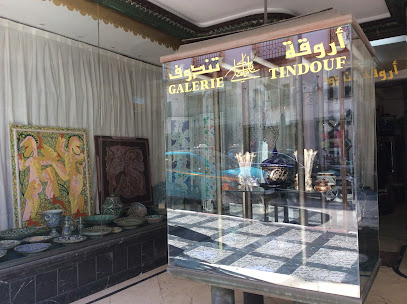
BEST BRAND
Explore the stylish elegance of BEST BRAND in Tangier, where Moroccan culture meets contemporary fashion in a vibrant shopping experience.
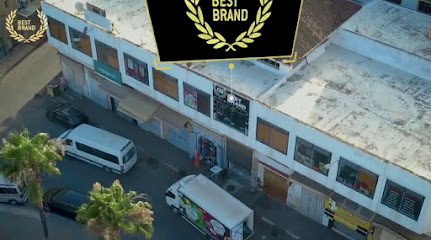
Recycle Fashion Morocco
Explore Tangier's vibrant vintage culture at Recycle Fashion Morocco, where sustainability meets unique fashion collections.
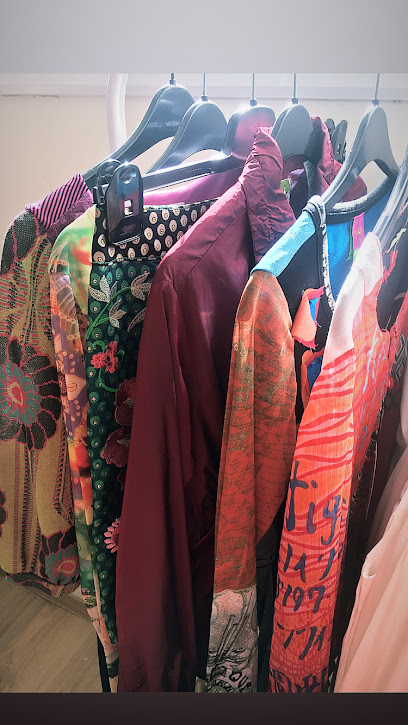
Berber Boutique Tanger
Immerse yourself in the vibrant artistry of Morocco at Berber Boutique Tanger, where tradition meets craftsmanship in every handcrafted treasure.
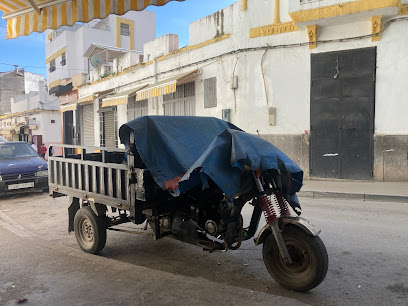
KM Couleurs
Discover unique Moroccan fashion at KM Couleurs, a vibrant clothing store in the heart of Tangier's Ancien Medina.
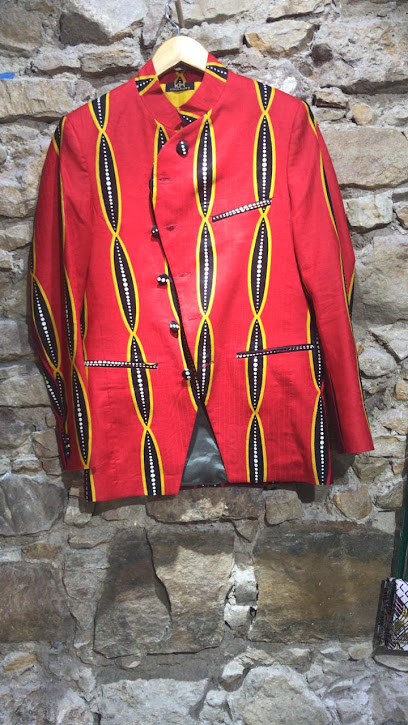
Essential bars & hidden hideouts
Blue Pub
Discover the lively Blue Pub in Tangier, a perfect blend of lounge, restaurant, and nightclub for an unforgettable night out.
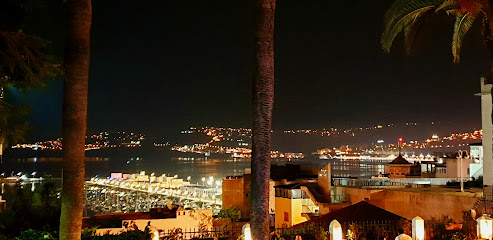
London's Pub
Discover London's Pub in Tangier, where British charm meets Moroccan flavor in a vibrant atmosphere perfect for any occasion.
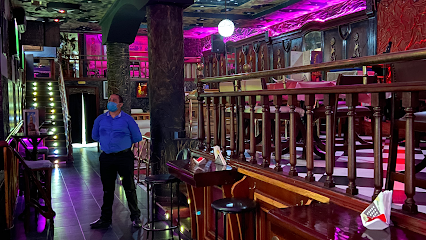
Number One
Discover vibrant nightlife and local charm at Number One, a premier bar in Tangier offering refreshing drinks and a welcoming atmosphere.
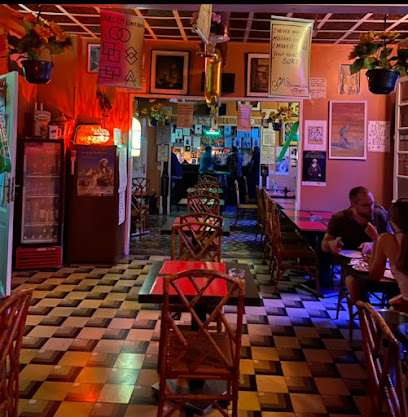
Pub Carrousel
Discover the vibrant essence of Tangier at Pub Carrousel, a cozy bar blending local charm with delightful drinks and a lively atmosphere.
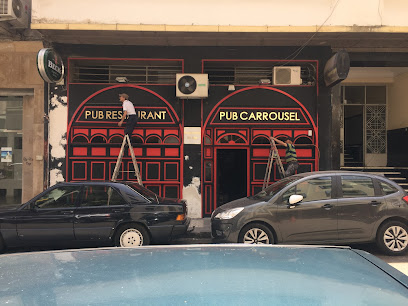
Chico’s
Experience the vibrant flavors of Morocco at Chico’s, Tangier's top spot for tapas and a lively pub atmosphere.
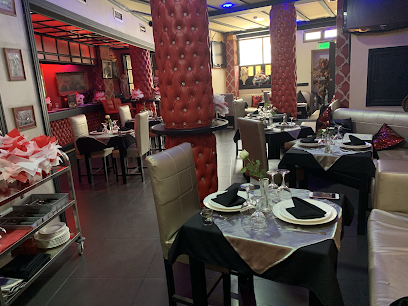
Tangerinn
Discover the vibrant nightlife at Tangerinn, a lively bar in Tangier where locals and tourists mingle over drinks and light bites.
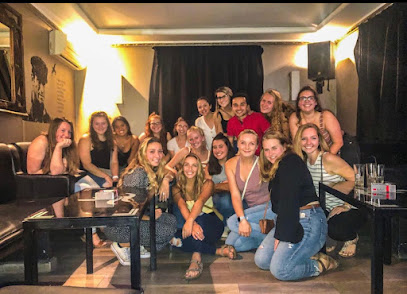
English Pub
Discover the vibrant atmosphere of the English Pub in Tangier, where traditional pub fare meets a lively social scene.
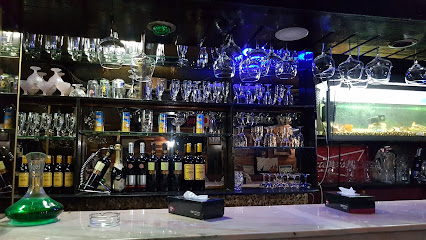
Hole in the Wall Bar
Discover the authentic vibe of Tangier at Hole in the Wall Bar, where locals gather to enjoy affordable drinks and vibrant atmosphere.
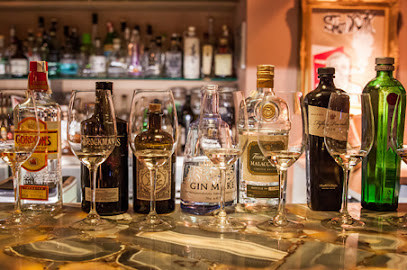
El Concierto
Experience the vibrant nightlife of Tangier at El Concierto, where delicious dining meets lively entertainment in a stylish lounge setting.
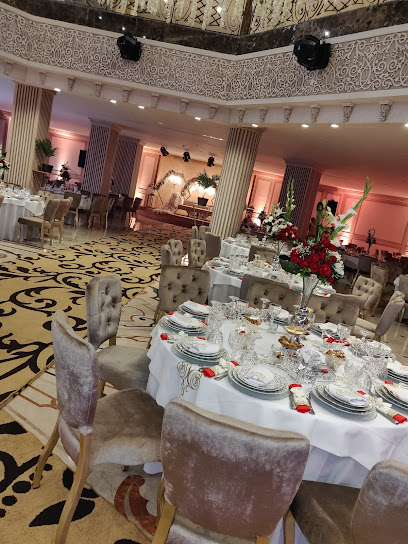
Le QG
Indulge in irresistible grilled delicacies at Le QG, Tangier's top destination for a memorable dining experience.
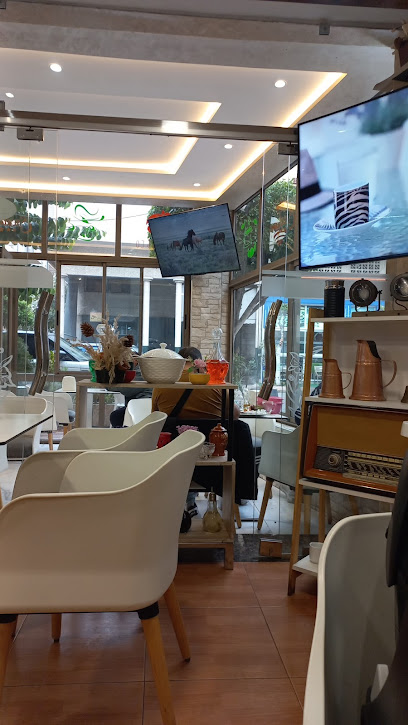
Radio Bar
Discover the lively Radio Bar in Tangier, a perfect blend of local culture, vibrant music, and refreshing drinks, ideal for every traveler.
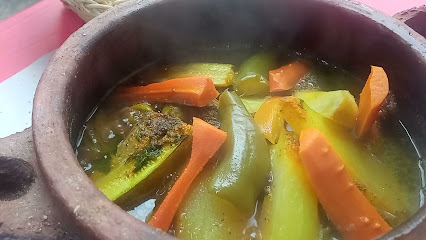
Le Nyx Piano Bar
Experience the enchanting ambiance of Le Nyx Piano Bar in Tangier, where live music and exquisite drinks create unforgettable nights.

Caid's Bar
Experience the vibrant atmosphere and unique cocktails at Caid's Bar in Tangier, a perfect blend of tradition and modernity.
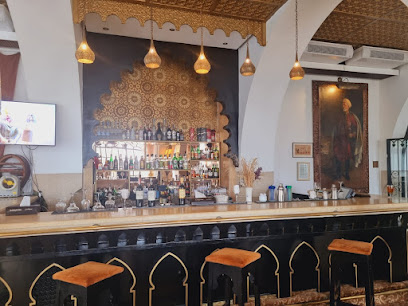
R.J’s Irish Pub
Discover R.J’s Irish Pub, a vibrant bar in Tangier, where Irish hospitality meets Moroccan charm, perfect for unwinding after a day of adventure.
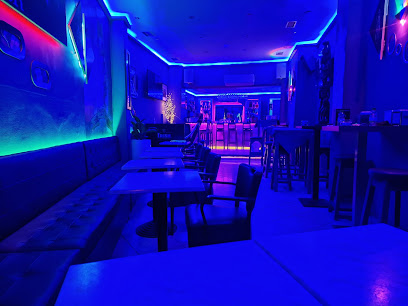
Local Phrases about Tangier Region
-
- Helloسلام
[salam] - Goodbyeوداعا
[wada'an] - Yesنعم
[naam] - Noلا
[laa] - Please/You're welcomeمن فضلك
[min fadlik] - Thank youشكرا
[shukran] - Excuse me/Sorryعذرا
[aathiraa] - How are you?كيف حالك؟
[kayfa haluk?] - Fine. And you?بخير. وأنت؟
[bikhayr. wa ant?] - Do you speak English?هل تتكلم الإنجليزية؟
[hal tatakallam al-inglizia?] - I don't understandلا أفهم
[laa afham]
- Helloسلام
-
- I'd like to see the menu, pleaseأريد رؤية القائمة، من فضلك
[uriid ru'ya al-qaaimah, min fadlik] - I don't eat meatأنا لا أكل اللحوم
[ana la akl al-lahum] - Cheers!في صحتك!
[fi sahtik!] - I would like to pay, pleaseأريد أن أدفع، من فضلك
[uriid an adfaa, min fadlik]
- I'd like to see the menu, pleaseأريد رؤية القائمة، من فضلك
-
- Help!النجدة!
[al-najdah!] - Go away!انصرف!
[ansarif!] - Call the Police!اتصل بالشرطة!
[itassil bial-shurta!] - Call a doctor!اتصل بالطبيب!
[itassil bial-tabib!] - I'm lostلقد ضللت الطريق
[laqad dalalt al-tariq] - I'm illأنا مريض
[ana mariid]
- Help!النجدة!
-
- I'd like to buy...أريد أن أشتري...
[uriid an ashtari...] - I'm just lookingأنا فقط أتفرج
[ana faqat atfarij] - How much is it?كم هو ثمنه؟
[kam huwa thamanuh?] - That's too expensiveهذا غالي جدا
[hatha ghali jiddan] - Can you lower the price?هل يمكنك خفض السعر؟
[hal yumkinuk khafd al-si'ar?]
- I'd like to buy...أريد أن أشتري...
-
- What time is it?كم الساعة؟
[kam al-sa'ah?] - It's one o'clockالساعة الواحدة
[al-sa'ah al-wahidah] - Half past (10)الساعة والنصف
[al-sa'ah wal-nisf] - Morningالصباح
[al-subah] - Afternoonالظهر
[al-zuhr] - Eveningالمساء
[al-masa] - Yesterdayأمس
[ams] - Todayاليوم
[al-yawm] - Tomorrowغدا
[ghadan] - 1واحد
[wahid] - 2اثنان
[ithnan] - 3ثلاثة
[thalatha] - 4أربعة
[arba'a] - 5خمسة
[khamsa] - 6ستة
[sitta] - 7سبعة
[saba'a] - 8ثمانية
[thamania] - 9تسعة
[tis'ah] - 10عشرة
[asharah]
- What time is it?كم الساعة؟
-
- Where's a/the...?أين ال...؟
[ayn al...?] - What's the address?ما هو العنوان؟
[ma huwa al-eanan?] - Can you show me (on the map)?هل يمكنك أن تريني (على الخريطة)؟
[hal yumkinuk an tureeni (ala al-kharitah)?] - When's the next (bus)?متى القادم (الحافلة)؟
[mata al-qaadim (al-hafilah)?] - A ticket (to ....)تذكرة (إلى ....)
[tazkirah (ila ....)]
- Where's a/the...?أين ال...؟
History of Tangier Region
-
Tangier's history dates back to antiquity, when it was known as Tingis. According to legend, Tingis was founded by the giant Antaeus, son of Poseidon and Gaia. The region was settled by the Phoenicians as early as the 10th century BCE, establishing Tangier as a key trading post.
-
In 146 BCE, Tangier became part of the Roman Empire. Renamed Tingitana, it was an important city in the province of Mauretania Tingitana. The Romans built significant infrastructure, including roads, aqueducts, and public buildings. Tangier thrived as a commercial hub during this period.
-
Following the decline of the Roman Empire, Tangier came under the control of the Vandals in 429 CE. The city experienced a period of instability until it was reconquered by the Byzantine Empire in the 6th century. The Byzantines reinforced the city's fortifications and maintained control until the arrival of the Arabs.
-
In the early 8th century, Tangier was conquered by the Umayyad Caliphate, marking the beginning of Islamic rule. The city became a center for Islamic culture and learning, attracting scholars and traders from across the Muslim world. Tangier thrived under the Idrisid and Almoravid dynasties, contributing to its rich Islamic heritage.
-
In 1471, Tangier was seized by the Portuguese as part of their expansion into North Africa. The Portuguese built new fortifications and attempted to establish a stronghold, but faced constant resistance from the local population. Tangier remained under Portuguese control until 1661 when it was ceded to England.
-
Tangier became an English possession in 1661 as part of the dowry of Catherine of Braganza, who married King Charles II. The English fortified the city further but struggled to maintain control amid frequent local uprisings. After 22 years of occupation, the English abandoned Tangier in 1684, destroying much of their fortifications upon departure.
-
Following the departure of the English, Tangier was reintegrated into the Moroccan kingdom under the Alaouite Dynasty. The city regained its status as a prominent port and trading center. Tangier became a melting pot of cultures, with a diverse population of Muslims, Jews, and Christians.
-
In 1923, Tangier was declared an International Zone, administered by multiple European powers. This unique status attracted diplomats, spies, artists, and writers, making Tangier a cosmopolitan enclave. The city became a haven for expatriates and a hub of intrigue during World War II.
-
Tangier was reintegrated into Morocco following the country's independence in 1956. The city underwent significant modernization and development while preserving its rich historical and cultural heritage. Today, Tangier is a thriving metropolis and a gateway between Africa and Europe, continuing to attract visitors from around the world.
Tangier Region Essentials
-
Tangier Region is served by Ibn Battouta Airport (TNG), located approximately 12 kilometers southwest of Tangier city center. The airport has direct flights from several European and regional destinations. Alternatively, you can reach Tangier by ferry from Spain, with regular services from Algeciras and Tarifa. The city is also accessible by train from major Moroccan cities like Casablanca and Rabat, with Tangier Ville and Tangier Med being the main railway stations.
-
Tangier offers a variety of transportation options. Taxis are plentiful and affordable; make sure to agree on a fare before starting your journey or ensure the meter is running. Petit taxis are for in-city travel, while grand taxis can take you to nearby towns and cities. Public buses are available and cover most areas within the city. For a more scenic route, consider renting a car or hiring a private driver. Tangier also has a newly developed tram system for convenient urban transit.
-
The official currency in Morocco is the Moroccan Dirham (MAD). Credit cards are widely accepted in hotels, restaurants, and larger shops, but it's advisable to carry cash for smaller vendors and markets. ATMs are readily available throughout Tangier, and major currencies like USD and EUR can be exchanged at banks and exchange offices.
-
Tangier is generally safe for tourists, but like any city, it has areas where caution is advised. Avoid neighborhoods like Boukhalef and Mesnana at night, as these areas have higher crime rates. Pickpocketing can occur in crowded places such as the medina, markets, and public transportation. Always keep an eye on your belongings and avoid displaying valuable items openly.
-
In case of emergency, dial 19 for police and 15 for medical assistance. The main hospital in Tangier is the Mohammed V Hospital, which has emergency services. Pharmacies are abundant and can provide over-the-counter medications. It is advisable to have travel insurance that covers medical emergencies. Make sure to carry a copy of your identification and keep the contact information for your country's embassy or consulate handy.
-
Fashion: Do dress modestly, especially when visiting religious sites. Avoid wearing revealing clothing. Religion: Do respect local customs and traditions. Always remove your shoes when entering mosques. Public Transport: Do be respectful and give up your seat to elderly passengers. Don't eat or drink on public transport. Greetings: Do greet people with a handshake or a right-hand-to-heart gesture. Eating & Drinking: Do try local delicacies and accept food offerings graciously. Don't use your left hand for eating, as it is considered impolite.
-
To experience Tangier like a local, visit the Petit Socco square where you can enjoy a traditional Moroccan tea. Wander through the historic medina and explore its narrow streets and vibrant markets. Don't miss the chance to visit the Kasbah Museum for a glimpse into the city's rich history. For a unique experience, take a walk along the Corniche and enjoy the stunning views of the Mediterranean Sea. Engage with locals, who are often friendly and willing to share stories about the city's culture and history.
Nearby Cities to Tangier Region
-
Things To Do in Tetouan
-
Things To Do in Asilah
-
Things To Do in Tangier
-
Things To Do in Europa Point
-
Things To Do in Gorham's Cave Complex
-
Things To Do in St. Michael's Cave
-
Things To Do in Alameda Botanic Gardens
-
Things To Do in Queensway Quay Marina
-
Things To Do in Main Street
-
Things To Do in Gibraltar
-
Things To Do in Catalan Bay
-
Things To Do in Moorish Castle
-
Things To Do in Casemates Square
-
Things To Do in Fes
-
Things To Do in Cádiz












